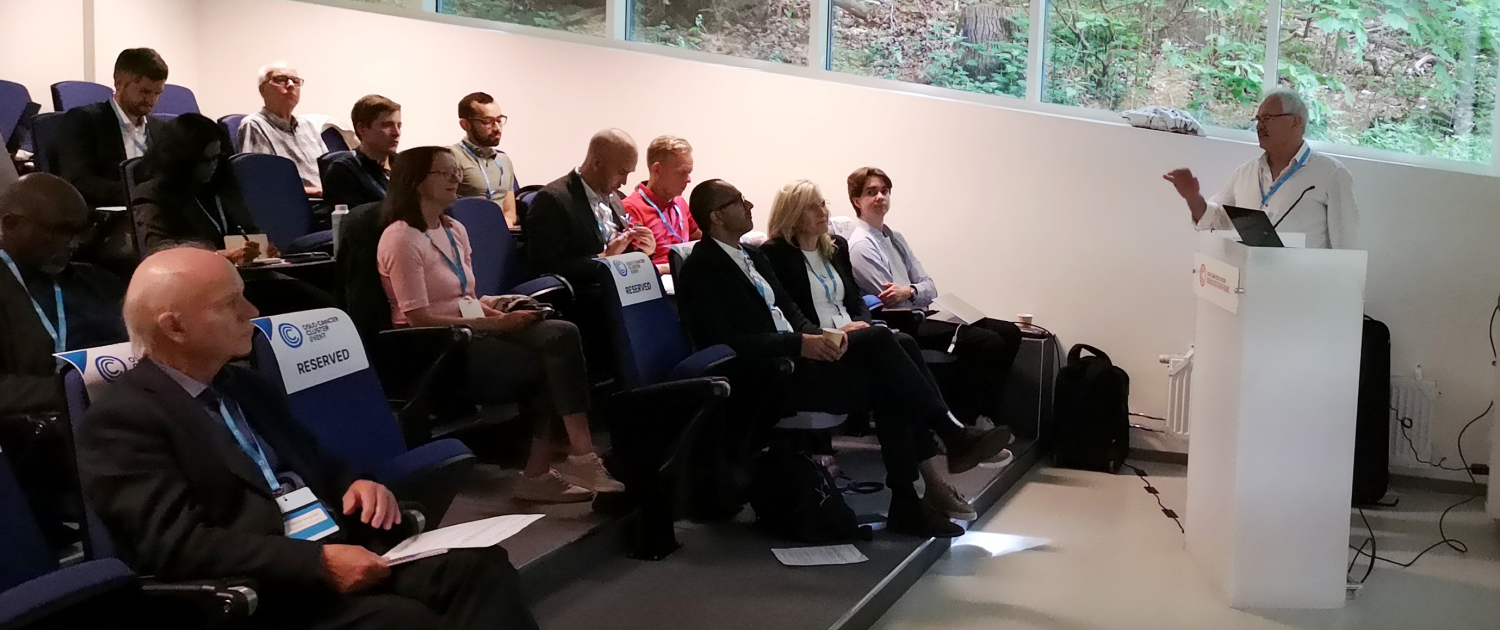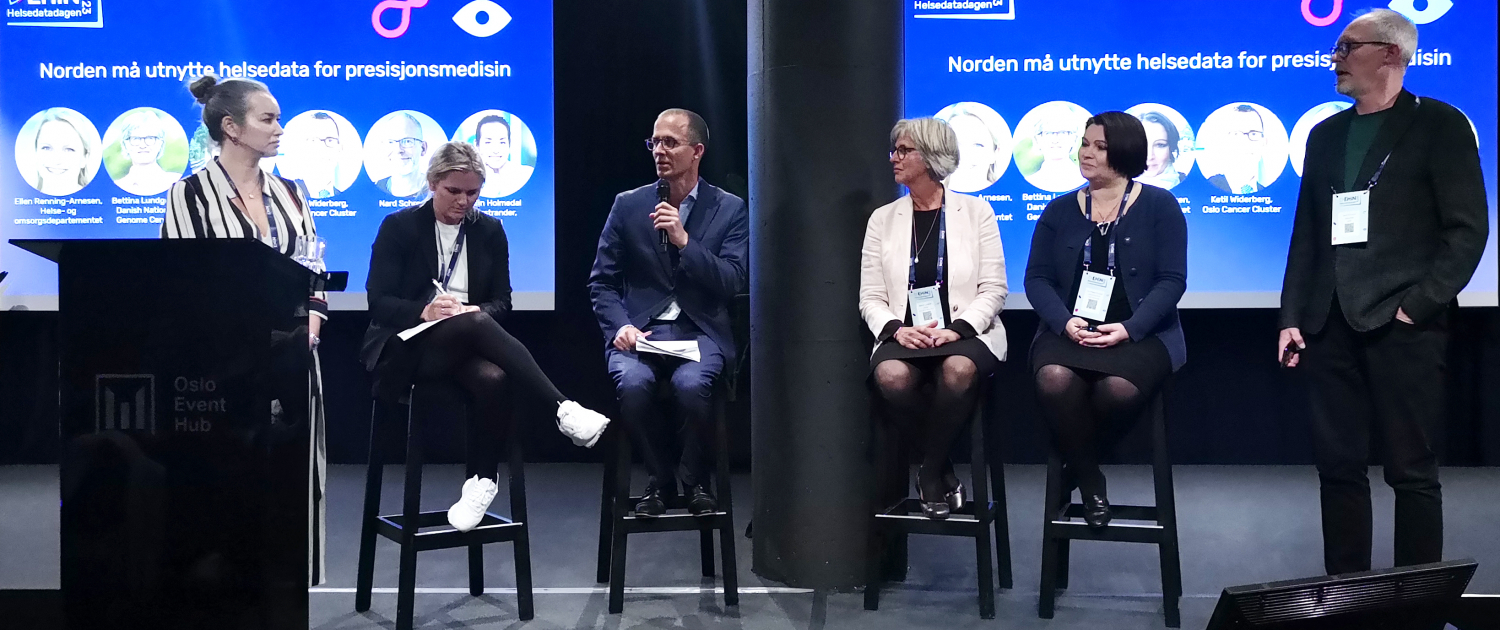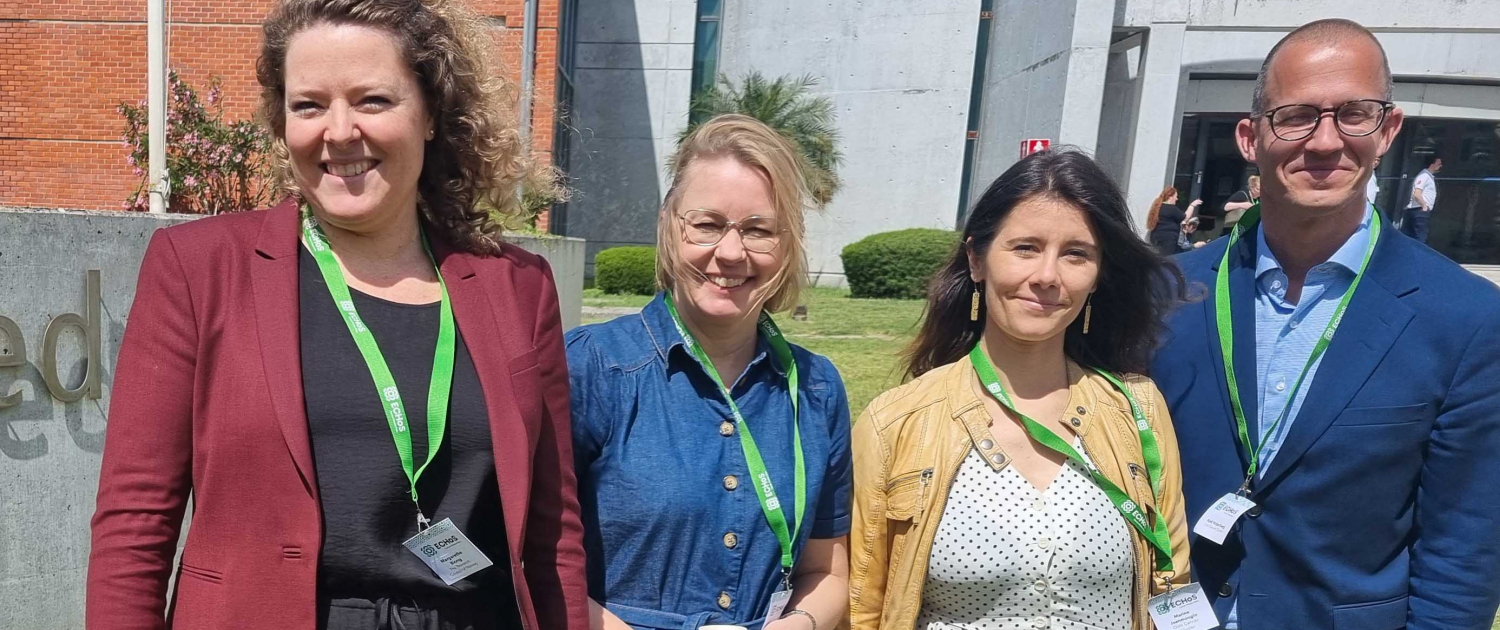Exploring lung cancer: screening and early detection

Could a screening programme reduce lung cancer mortality in Norway?
Lung cancer is the deadliest type of cancer and the fourth most frequently occurring cancer in Europe. Yet, there are still no established lung cancer screening programmes in the world. Why is that and how can the challenges in screening and early detection be overcome?
These were some of the questions discussed in depth at the Lung Cancer Symposium: Early Diagnostics and Screening, Benchmarking the Nordics+ on 24 May 2023 at Oslo Cancer Cluster.
“Screening for lung cancer has been in the pipeline for years. Now it seems right to start in the Nordic countries. With this first Nordic meeting for lung cancer screening, we had the pleasure to share our pilot projects, the very important selection methods of high-risk populations and our experiences so far. We all met in a very friendly atmosphere and look forward to collaborating in the future,” commented Oluf Dimitri Røe, MD, PhD, Professor, NTNU, the co-chair and moderator of the symposium.
Collective efforts
Attendees from academia, industry, patient organisations, the cancer registry and governmental agencies took part in the symposium.
“Cooperation is key in the fight against cancer. The Lung Cancer Symposium: Early Diagnosis & Screening, Benchmarking the Nordics+ highlighted this as experts in the Nordics and the International Agency for Research on Cancer (IARC/WHO) shared benchmarking with an engaged audience. It was motivating to witness this and to be a part of the collective efforts for cooperation amongst this oncology ecosystem,” confirmed Charlotte Wu Homme, symposium co-chair, who serves as Head of Membership and Events, Oslo Cancer Cluster.
Nordic speakers
The programme included expert speakers from the Nordic countries Sweden, Norway, Denmark, Finland and Iceland. They framed the challenges of lung cancer and addressed clinical models for risk prediction, early diagnosis, and screening in the Nordics.
There was also an introduction by the Norwegian Cancer Society and a digital presentation giving the World Health Organisation’s perspective. Finally, a panel discussion covered implementation models for screening and selection.
About
Lung Cancer Symposium: Early Diagnostics & Screening, Benchmarking the Nordics+ was sponsored by Astra Zeneca and Daiichi Sankyo and received support from Innovation Norway. The first symposium was presented on May 24, 2023. Based on feedback, a follow-up symposium is planned for 2024.
The symposium was organised by Oslo Cancer Cluster (OCC) and the Norwegian University of Science and Technology (NTNU). Organizing committee: Oluf Dimitri Røe, NTNU, and from OCC: Charlotte Homme, Dave Tippett, Marine Jeanmougin.
List of speakers (full titles):
- Ole Alexander Opdalshei, Deputy of Research, Norwegian Cancer Society
- Oluf Dimitri Røe, MD, PhD, Professor, Department of Clinical and Molecular Medicine, Faculty of Medicine and Health Sciences, Norwegian University of Science & Technology (NTNU), Department of Oncology, Levanger Hospital, Levanger, Norway,
- Mattias Johansson, Head Scientist, International Agency for Research on Cancer (IARC/WHO) Lyon, France
- Aija Knuuttila, MD PhD, Associate Professor, Department of Medicine, HUS Comprehensive Cancer Center, Helsinki, Finland
- Hrönn Harðardóttir, Pulmonologist, Landspítali University Hospital, Reykjevik, Iceland
- Bengt Bergman, M.D, Ph,D,, Respiratory Medicine, Sahlgrenska University Hospital, Göteborg
- Zaigham Saghir, MD, PhD, Professor, Department of Respiratory Medicine, Gentofte University Hospital, Hellerup, Denmark
- Haseem Ashraf, Associate Professor, University of Oslo, Oslo, Norway, Department of Imaging, Akershus University Hospital, Oslo, Norway
Did you find this interesting? Join our upcoming events via our event calendar or get recommendations in your inbox via our monthly newsletter.
The post Exploring lung cancer: screening and early detection first appeared on Oslo Cancer Cluster.






